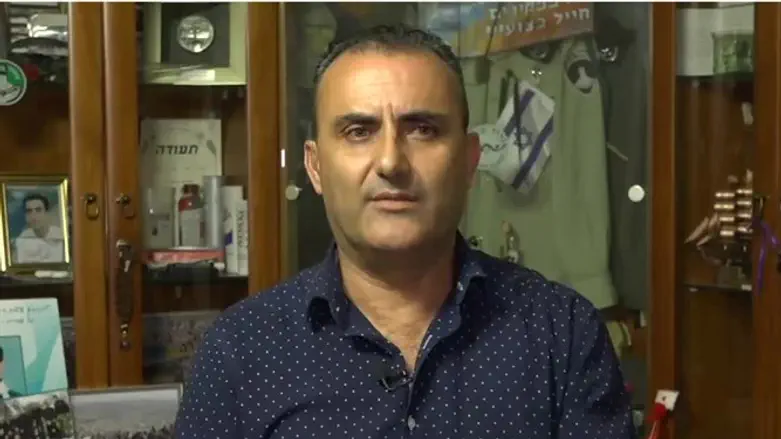
On October 2, 2000, violent Palestinian Arab terrorists attacked Joseph's Tomb, an enclave guarded by IDF troops to prevent its destruction, but located in the PA-controlled city of Shechem (Nablus), shooting and throwing firebombs. Border Policeman Madhat Yusuf was wounded in the neck and despite an IDF rescue force 800 meters away, then-Prime Minister Ehud Barak forbade troops from rescuing Yusuf because Joseph's Tomb is located in Palestinian Authority-controlled Area A. Yusuf ended up bleeding to death for over five hours while he waited in vain for rescuers to arrive.
Monday marks 17 years since the tragedy, and Yusuf's brother blasted Barak, contending that Barak willingly sacrificed Madhat Yusuf and had the temerity to contact his family for what Yusuf claims was an attempt to gain political capital.
"He recently sent us messages that he wanted to meet with us," Madhi Yusef told Channel 20. "He let my brother die, and didn't even lift a finger to save him. Why, after 17 years of ignoring us, of not answering our phone calls, of not even sending a condolence letter, does Barak suddenly contact us? Why does he want to speak to the family? He probably wants to re-enter politics," Yusuf contended.
"Barak shouldn't benefit from my brother's blood. He can come, but he needs to answer one question - Why did you let Madhat Yusuf die? He was an IDF soldier," charged Yusuf.
"17 years after my brother was left to die, no one in the country's leadership is telling the truth," Yusuf concluded. "Why wasn't he saved? He was an IDF soldier on a mission. He fulfilled his mission."
In February 2011, Yusuf's family considered petitioning the Supreme Court to block Benny Gantz's nomination to the position of IDF Chief of Staff, holding Gantz responsible for Yusuf's death during his term as Judea and Samaria Division Commander in 2000. However, the Turkel Committee, which vets nominees to sensitive posts, concluded that Gantz "was not the most senior ranking commander at the scene, and there were operational as well as political considerations involved in the incident for which he was not responsible."